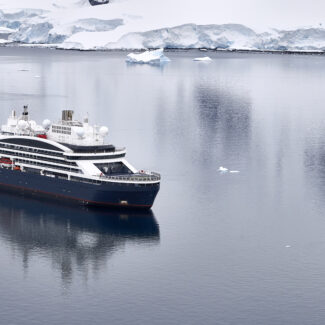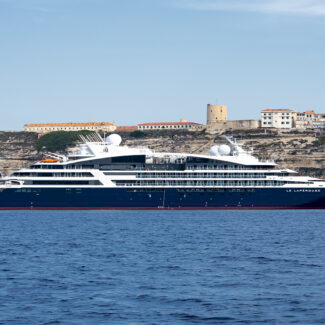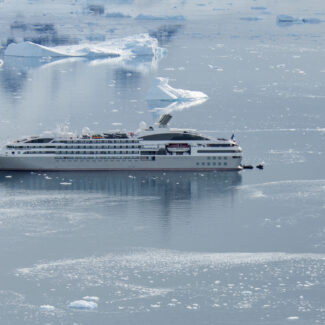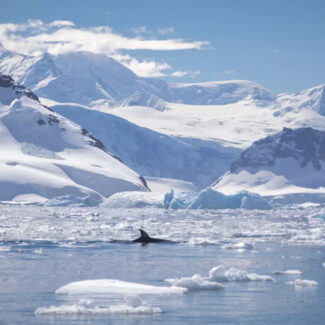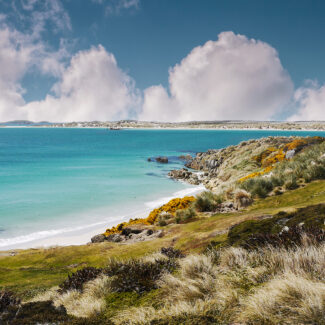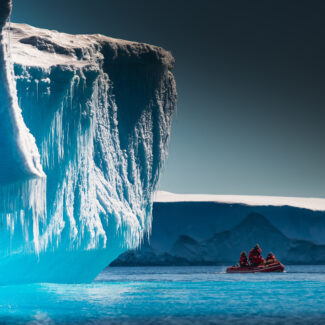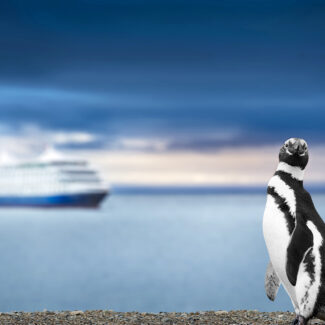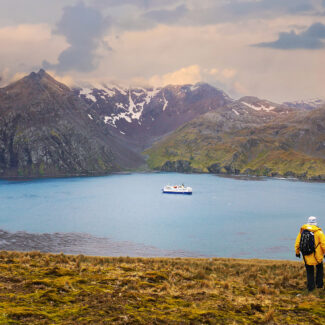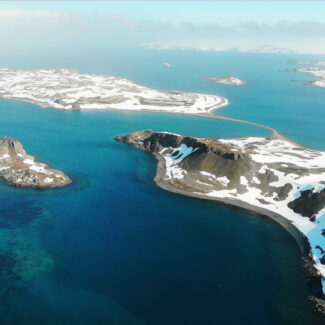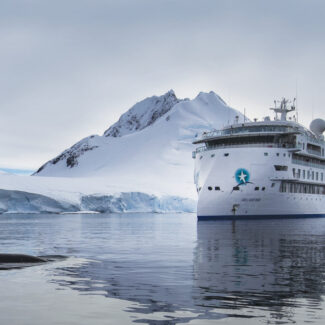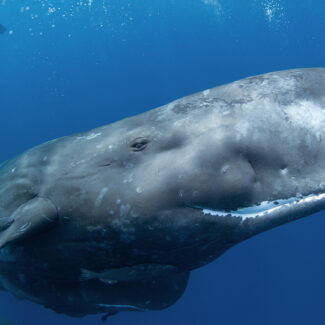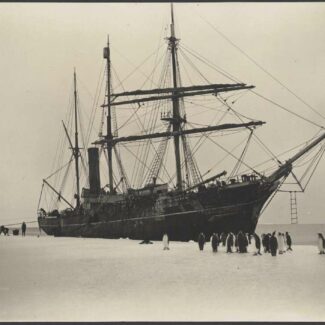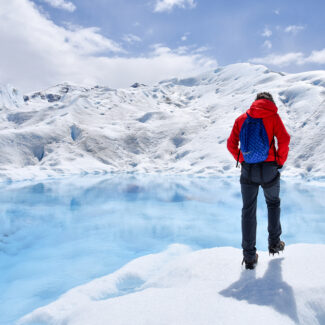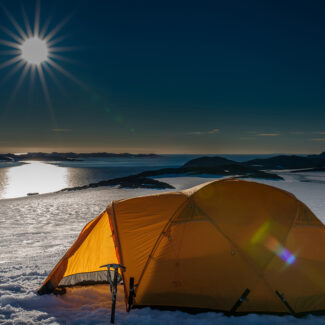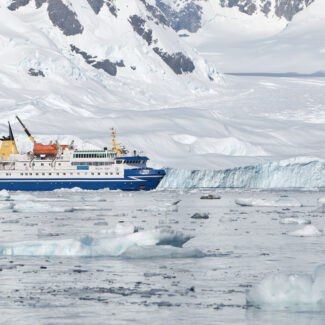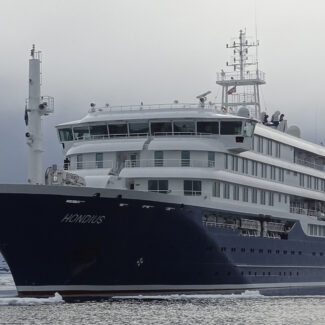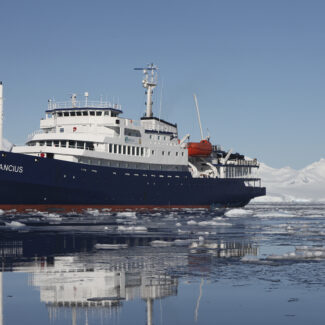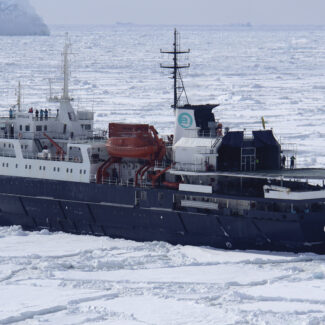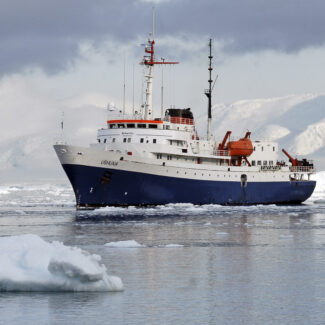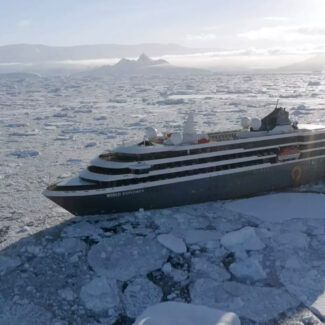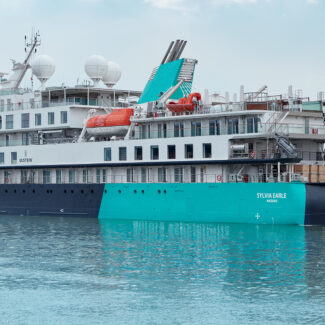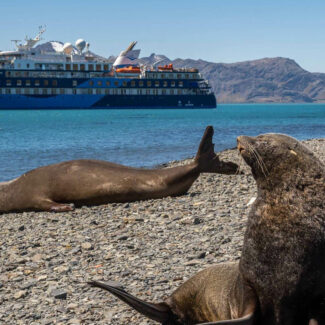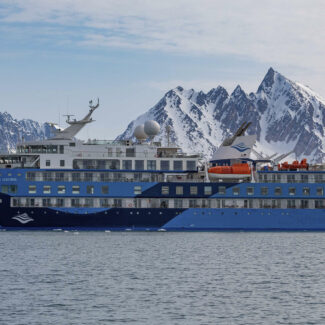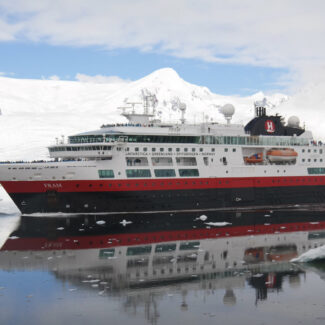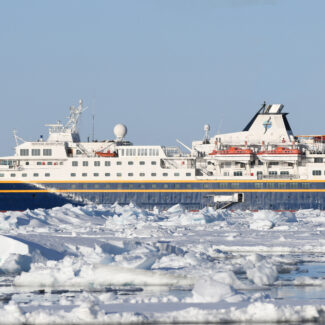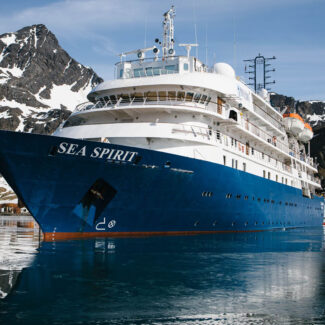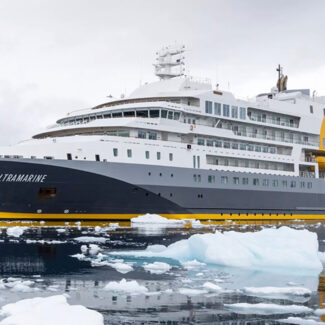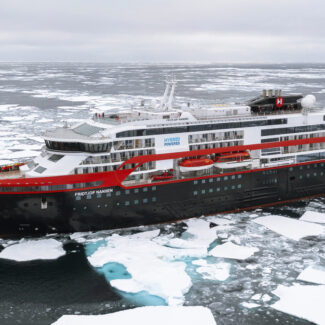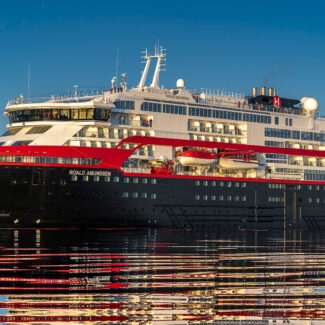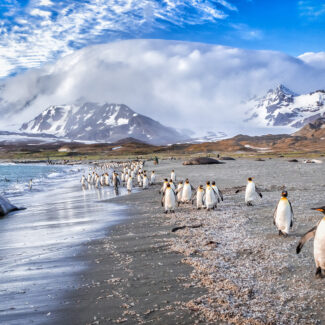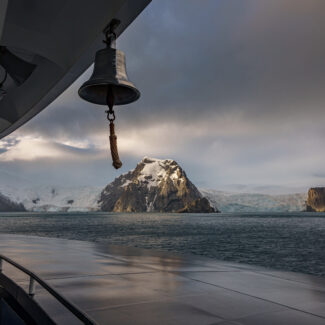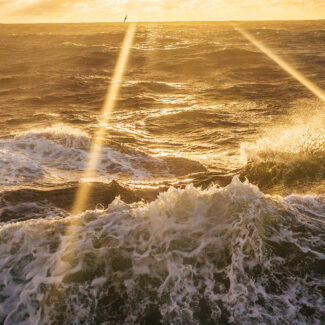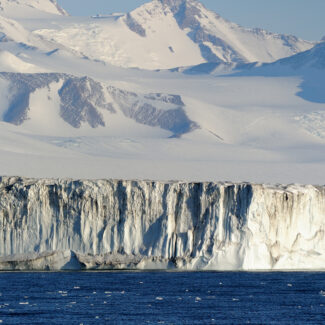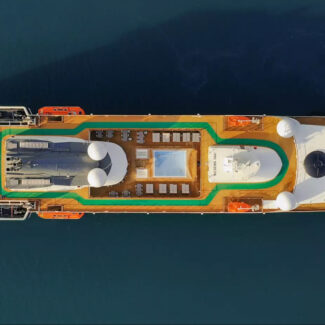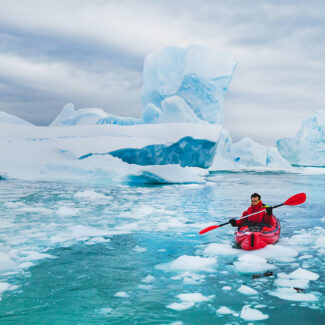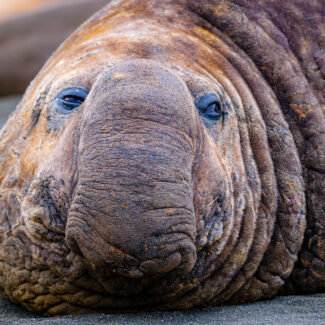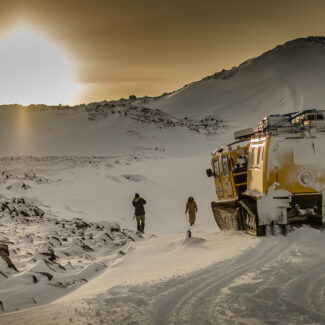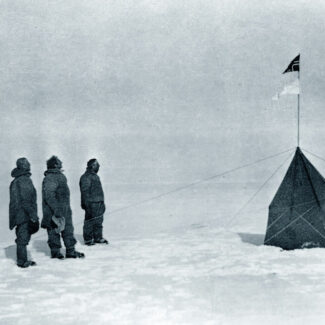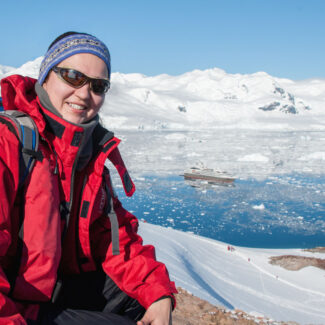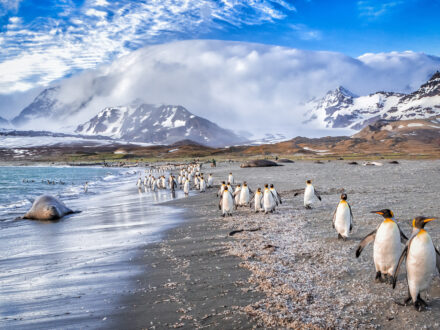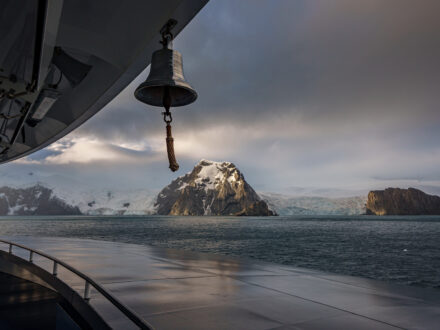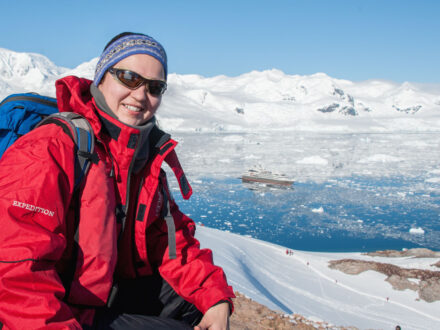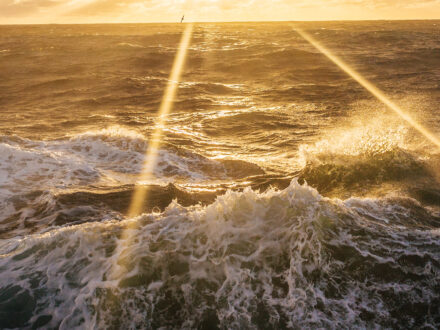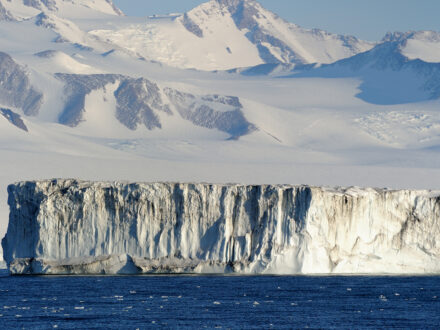How To Find The Best Antarctica Travel Insurance For You
- Key Considerations For Antarctica Travel Insurance
- Geographical Coverage
- Trip Delays
- Missed Flight/Connection
- Trip Cancellation
- Trip interruption
- Policy Excess
- Medical Emergency Evacuation, Repatriation and Expenses (Including COVID-19)
- On-shore and Off-shore Adventure Activity Cover
- Baggage Loss, Theft and Delay
- Frequently Asked Questions About Antarctica Travel Insurance
- Why Should I Purchase Travel Insurance for My Polar Expedition?
- When Should I Arrange My Travel Insurance
- What Is the Difference Between Medical Insurance and Emergency Evacuation Insurance?
- What Part of My Expedition Do I Need to Cover With Travel insurance?
- What If I Have Travel Insurance Through My Own Credit Card Benefits?
- What If I Already Have a Worldwide Travel Insurance Policy?
- Can You Not Choose and Book My Travel Insurance For Me?
- What Is the Best Travel Insurance for Antarctica?
- Antarctica Travel Insurance Providers
- Antarctica Travel Insurance for North American travelers
- Antarctica Travel Insurance for UK travelers
- Antarctica Travel Insurance for Australian travelers
- Questions You May Like To Ask Your Insurer
- I’ve Bought My Insurance. What Next?
Travel insurance is not just important when visiting Antarctica due to its extreme isolation, conditions, and the considerable costs associated, but some levels of coverage—especially with regards emergency evacuation, repatriation, and medical cover—are a mandatory requirement for travelers.
As with any form of travel, insurance to protect you, your belongings, and your investment, is a wise choice, but perhaps never has it been more apparent than when booking an Antarctica expedition where the risk-reward relationship is higher than most.
Modern explorers certainly have it easier than those in whose wakes they follow, with the latest state-of-the-art expedition vessels arguably the safest found anywhere on the seven seas, but it would be foolhardy to take a trip to this wild and unpredictable part of the world without adequate protection.
Here we’ll take a look at how travel insurance for Antarctica—like the continent itself—is unlike anything else, and point out what makes a good policy to give you the peace of mind to embark on your expedition with only excitement and without any apprehension.
Key Considerations For Antarctica Travel Insurance
Geographical Coverage
While most cruises tend to visit the Antarctic Peninsula region, some visit more remote reaches of the continent, and other trips even venture into the depths of the Antarctic interior. So whilst an insurance policy may state it covers Antarctica, please do check it covers the entire continent or at a minimum your chosen expedition route.
Operator requirements regarding travel insurance covering Antarctica’s interior are normally even greater than those for Antarctica cruises given the extra logistical complications, higher costs associated with evacuation, your likely participation in more adventurous (and subsequently hazardous) activities, and the added danger of higher altitude—as Buzz Aldrin, the second man on the Moon, will attest after having to be evacuated from the Amundsen-Scott South Pole Station to McMurdo Station on the south tip of Ross Island and on to Christchurch, New Zealand, after succumbing to its effects.
So if you are planning a visit to the South Pole or spending some significant time camping on the White Continent, be prepared for higher minimum coverage requirements for Medical Evacuation Insurance—anywhere from USD$150,000, but as high as USD$300,000 for expeditions outside of the Ellsworth Mountains—and also be aware that policies often need to be not just for the duration of your expedition but at least 7 days beyond your return flights home to ensure you’re covered in the event of any unforeseen delays.
Whichever part of the White Continent you’ll be exploring, you’ll likely be traveling to several countries en route to Antarctica so you will need to ensure your policy covers these destinations too. For example, if your cruise departs from Ushuaia, you’ll need a policy that covers you for both Argentina and Antarctica, or if you are booked on a fly-cruise from Punta Arenas you will require a policy covering Chile and Antarctica.
Related to this, it is also important to check whether your insurance will still cover you in the event of any changes to governmental travel advisories relevant to your trip, such as a Level 4 travel advisory being announced unexpectedly before or during your travels.
Trip Delays
Nowhere else but Antarctica can the weather conditions actually dictate when your ship or aircraft can depart, and delays due to dangerous flight or unsailable sea conditions can be long, sometimes even days. It’s therefore vital to purchase an Antarctica travel insurance policy that covers you for trip delays.
Most Antarctica travel insurance policies will cover you up to somewhere in the region of USD$500 for trip delays, however, if you can find higher, do so, as trip delays in Antarctica are not uncommon. In order to avoid disappointment it’s best to book your Antarctica cruise with some leeway either side to give yourself the flexibility to adjust your travel plans as required.
Missed Flight/Connection
While travel delay typically covers a daily amount for unplanned accommodations and other costs incurred as a result of a delay, missed flight/connection cover—often available as an add-on—additionally reimburses you for potentially expensive transportation costs required to “catch up” to your trip in the event of a covered delay. This may be very useful for those with short lay-overs or anyone considering a fly-cruise itinerary where the connecting flight is crucial to the experience.
Trip Cancellation
Whilst Trip Cancellation insurance isn’t a requirement as such, given the high cost of Antarctica expeditions we strongly advise that you do purchase it to protect yourself against any event which may force you to cancel your trip before departure, including unforeseen illness, family death, or natural disasters.
Equally unlikely, potential cruise operator insolvency is also a possibility. Indeed, one of the major Antarctica cruise operators was forced to cease operations a few years ago and anyone who had not purchased Antarctica travel insurance prior to their trip lost any monies they had already paid. A good Antarctica trip cancellation policy will also include cover for the continent’s capricious weather conditions.
Trip cancellation generally pays out anywhere from USD$2,500 – USD$10,000 depending on the policy level, so if your trip costs more than the limit specified you may wish to consider purchasing a “top-up” policy to cover the difference.
Trip interruption
A trip interruption normally occurs when a traveler unexpectedly has to cut short their trip and return home—like trip cancellation but after you have already begun your trip—so it is equally sensible to protect yourself for any events that may cause you to leave your polar experience part-way through.
Conversely, trip interruption can also encompass events which may cause you to have to stay in your destination longer than you’d originally planned. If you are sailing the notorious Drake Passage, trip interruption cover would be sensible as it is not unheard of for a ship to have to turn around due to high winds and rough seas. Trip interruption normally covers you up to USD$5,000 on a standard Antarctica travel insurance policy.
Policy Excess
One tool at your disposal for reducing the price of your Antarctica travel insurance policy is by raising your policy excess—the amount you are willing to pay first as part of any claim. Most insurers will have a compulsory excess of roughly USD$100 – USD$200. If you wish to remove such an excess, note that only a few Antarctica travel insurers offer zero excess policies.
Medical Emergency Evacuation, Repatriation and Expenses (Including COVID-19)
Because of Antarctica’s remote location and the expense of getting someone to a medical facility, every Antarctic tour operator requires you to have a certain level of medical emergency (air-)evacuation insurance before you can embark your expedition vessel. (Medical repatriation is slightly different to medical emergency evacuation as it covers travelers who’d prefer to be taken home to have medical treatment rather than just be taken to the nearest hospital.)
Given the cost of an Antarctica evacuation is upwards of USD$100,000 and simple hospital operations costing in excess of USD$10,000, it’s perhaps unsurprising that Antarctica operators typically require you to have a minimum emergency evacuation, repatriation and medical cover of USD$100,000 – USD$250,000 (or even higher for trips to the Antarctic interior outside of the Ellsworth Mountains). It is important that you check this minimum amount in advance. Be warned that while many Antarctica travel insurance policies may claim they cover you for USD$5,000,000 or more, this rarely includes any actual evacuation so do check the wording carefully.
Closely linked to the topic of geographical coverage, Argentina and Chile (or any other country you may be traveling through to get to Antarctica) may also have their own medical insurance requirements for entry into the country. For example, during the pandemic, both these countries required foreign nationals to have medical insurance that explicitly covered any expenses relating to COVID-19 (medical costs, quarantine, trip delay, etc.) upon entry, indeed Chile required a fixed level of medical insurance with a minimum claim value of USD$30,000.
Whilst these may no longer be applicable currently, the situation may revert back so we have included this point to raise awareness. Please be aware that whilst we make every effort to ensure the latest requirements are reflected here, it is your responsibility to check they haven’t changed before you travel.
Also note that, as with all medical insurance, Antarctica travel insurance policies will not cover you for any pre-existing medical conditions or illnesses.
On-shore and Off-shore Adventure Activity Cover
One of the most important aspects of any Antarctica travel insurance policy is understanding what activities you are covered for. Some policies may stop covering you the moment you leave your cruise ship, others however may cover you (as standard or via an add-on) for some but not all polar pursuits you’ll be partaking in. Even if they do in fact cover every adventure activity, insurers rarely openly state every covered activity so it will be up to you to read the fine print to make sure you’re covered.
Most policies will cover you for on-shore activities such as wildlife watching, but activities such as kayaking, scuba diving, camping and hiking are typically not covered as standard but easily added on for a premium. More hazardous activities or trips to the Antarctic interior like mountaineering, skiing, and skydiving may require separate specific coverage or higher minimum medical evacuation limits.
Baggage Loss, Theft and Delay
Another important consideration for your Antarctica travel insurance is your baggage cover—particularly important for the many Antarctica travelers planning to take high-end camera gear with them. No one wants to turn up for their once-in-a-lifetime Antarctica expedition to find their expensive equipment has been lost in transit, damaged, or worse still, stolen. Luckily, all standard Antarctica insurance policies cover for such scenarios to some extent, however, it’s important to understand how much you are covered for.
A standard amount for lost or stolen luggage is USD$1,000, but if you’re carrying expensive camera gear, this amount won’t really cut it! Also note that many policies will not actually cover you for any optic or electronic gear, or any items that have been bought second-hand.
It’s always advisable to bring a lock to secure your luggage. Although theft is not a problem in Antarctica or on any Antarctic expedition cruises, like any busy city the world over, Ushuaia and other South American cities you may visit or transit through are not exempt from crime and sensible precautions should be taken.
Frequently Asked Questions About Antarctica Travel Insurance
Here is a list of the most common questions we receive with regards travel insurance for Antarctica cruises and expeditions. Should you have any additional questions that aren’t covered here, feel free to get in touch with our specialists who will endeavor to answer your queries.
Why Should I Purchase Travel Insurance for My Polar Expedition?
Given the remote regions you’ll be visiting, the unpredictable weather and sea conditions, and the high cost of a polar expedition, comprehensive travel insurance is not only strongly recommended to protect yourself, your belongings, and your investment, but certain levels of coverage is also a stipulation of cruise operators in order to embark on an expedition.
When Should I Arrange My Travel Insurance
It is best practice to arrange any travel insurance at the same time as you book your trip (or as soon after booking as is feasible) not only to ensure your investment is protected for trip cancellation as soon as possible, but also because some insurance policies actually offer a reduced level of coverage—or none at all in the case of “Cancel for Any Reason” policies—if not bought sufficiently soon after paying for your cruise deposit.
What Is the Difference Between Medical Insurance and Emergency Evacuation Insurance?
Emergency Evacuation Insurance covers the incurred transportation costs associated with getting you to the nearest location with a medical facility for your needs, whereas Medical Insurance takes over once you get to that facility to cover your medical expenses, such as medical procedures, doctor/hospital fees, prescriptions, etc.
What Part of My Expedition Do I Need to Cover With Travel insurance?
It is recommended you purchase travel insurance coverage for the entire cost and duration of your travel plans, including any countries you’ll be visiting or traveling through before and after your expedition. If you are planning to visit the Antarctic Interior you may even need to get coverage for up to a week after your scheduled return date in the event of any unforeseen delays.
What If I Have Travel Insurance Through My Own Credit Card Benefits?
Credit card travel insurance policies often exclude Antarctica expeditions, medical evacuations, and trip delays, but it is your responsibility to find out what travel insurance coverage and benefits you may have through your credit card provider to see if it is suitable and sufficient for your and any tour operator requirements.
What If I Already Have a Worldwide Travel Insurance Policy?
Despite being called ‘worldwide’ policies, many do not include Antarctica so it is always advisable to check the geographical coverage of your policy. Even if they do, such policies rarely have the requisite levels of coverage for emergency evacuation, or indeed the desired trip cancellation amounts either. It may however be possible to top up an existing policy with your current or a separate provider, but do be aware that top up insurance is contingent on your base insurance paying out.
Can You Not Choose and Book My Travel Insurance For Me?
Antarctica Cruises are not insurance experts and are not legally permitted to provide insurance advice. Any considerations and comments here are solely based on our personal experiences and research, and should not be relied upon or construed as insurance advice in any way. Each traveler is individually responsible for arranging their own insurance and should always consult with an accredited insurance provider or broker for accurate information.
What Is the Best Travel Insurance for Antarctica?
Really this question should be, “what is the best travel insurance policy for my Antarctica trip?” as everyone’s personal circumstances, age, health, belongings, route, activities, historical claims, affluence levels, and risk appetite are unique to them.
For example, someone may be too old, be wanting to bring too expensive camera equipment, or take part in too hazardous an activity for some underwriters to insure for a reasonable price, or sometimes even at all. Other travelers may be wanting to visit more remote locations than someone else, and may be willing to pay much more in excess in the event of a claim for a lower premium.
All this goes to highlight that the best Antarctica travel insurance policy for you will always be the one which provides you personally with sufficient peace of mind, whilst still satisfying the requirements of the tour operator you’ll be traveling with. For more detailed information on what is required for your specific expedition please refer to your tour operator’s terms and conditions.
Antarctica Travel Insurance Providers
We have provided a list of well-known Antarctica travel insurance providers below to assist you in finding and researching those Antarctica insurance policies we are aware of. As our expertise lies in Antarctic expedition cruises and not the nuances of insurance—not to mention that legally we are not permitted to provide any insurance advice—please address any specific questions you may have about your particular requirements to them.
Given insurance typically has to be bought in your country of residence, it may be worthwhile contacting a local insurance broker who has a thorough understanding of the options available in your region, as they may be able to match you up to a suitable policy.
Always take the time to thoroughly review any prospective policy and its exclusions before purchasing. Again, for legal reasons we are unable to check the wording or suitability of any policies you are considering, so should you have any queries needing clarification please contact the relevant insurer directly.
If your locale is not listed below then unfortunately we are unable to provide any insurer information.
Antarctica Travel Insurance for North American travelers
Please note that many standard US-based insurance policies will cover you for travel to a Level 4 travel advisory country, but not for cancellation because of a state advisory change prior to entering the country or for “fear of travel” reasons. Known Antarctica travel insurance providers serving North America residents who you may like to contact for a quote include:
Cat70
Tin Leg
HTH Travel Insurance
Travel Guard
Travelex
Arch – RoamRight
Allianz
Squaremouth (comparison site)
Antarctica Travel Insurance for UK travelers
Please note that standard UK insurance policies often have insufficient cancellation coverage to fully protect most trips to Antarctica, so you may need to consider purchasing an additional “top-up” policy. Known Antarctica travel insurance providers serving UK residents who you may like to contact for a quote include:
PJ Hayman
Campbell Irvine
Travel + General
Antarctica Travel Insurance for Australian travelers
Known Antarctica travel insurance providers serving Australia residents who you may like to contact for a quote include:
Questions You May Like To Ask Your Insurer
Here are some important points you may like to discuss with your insurer prior to purchasing your Antarctica travel insurance policy. We strongly recommend phoning insurers to discuss your requirements as it can prove difficult finding all the necessary answers online, not to mention time consuming.
Please note this list of questions is not exhaustive and you should ensure you also discuss any relevant personal circumstances which apply to you.
- Does the policy cover cruising or travel to countries that are subject to a travel advisory? For example, for US-based travelers it’s important to ask about scenarios around US State Department travel advisory Level 4, both prior to booking or during your trip.
- What coverage does this policy include in relation to COVID-19? For example, cancellation coverage for the full value of the trip should you test positive prior to departure, and travel delay, interruption, and medical coverage should you test positive during travel and need medical costs?
- Does the policy cover you for any missed flights, connections, or airline delays which may have a detrimental knock-on effect to your trip?
- Will the policy cover you for any lost or curtailed cruise days as a result of inclement weather, along with any charges for rescheduling other impacted travel arrangements such as hotels and flights.
- Does the cancellation coverage amount actually cover the full cost of the expedition cruise plus any flights and hotel arrangements that you may have booked separately?
- Is a “Cancel for Any Reason” policy available and, if so, what are its terms and conditions?
- Does the policy sufficiently cover all the requirements set out by your tour operator? This may include mandatory emergency evacuation coverage to a certain value.
- Are all the adventure activities I’ll be participating in covered?
Having the right travel insurance for you and your Antarctic adventure will give you peace of mind before and during your travels, so be sure to take your time to research the options available and scrutinize the fine print.
I’ve Bought My Insurance. What Next?
Once you have booked your trip with us and bought an appropriate insurance policy to comprehensively cover your full itinerary and any associated activities, your Antarctica specialist will request a copy, usually several weeks in advance of travel, to submit to the relevant tour operators for review and filing as proof of coverage. After that, you can concern yourself with packing your bags and building up the excitement for your trip of a lifetime.
When it comes to actually traveling, we recommend not only having your policy easily accessible on your phone, but also carrying a printout (or two) to show at airline counters when boarding your flight(s) if requested, and storing both your policy number any relevant claim hotline numbers in your contacts for ease of reference. Hopefully you’ll be among the throngs of Antarctic travelers who won’t be in need of any of them, but in the unlikely event a situation arises that you do need to make a claim for, be sure to inform your insurer immediately and adhere to any specific process they require you to follow as specified in their policy wording.
Disclaimer
Our travel guides are for informational purposes only. While we aim to provide accurate and up-to-date information, Antarctica Cruises makes no representations as to the accuracy or completeness of any information in our guides or found by following any link on this site.
Antarctica Cruises cannot and will not accept responsibility for any omissions or inaccuracies, or for any consequences arising therefrom, including any losses, injuries, or damages resulting from the display or use of this information.
